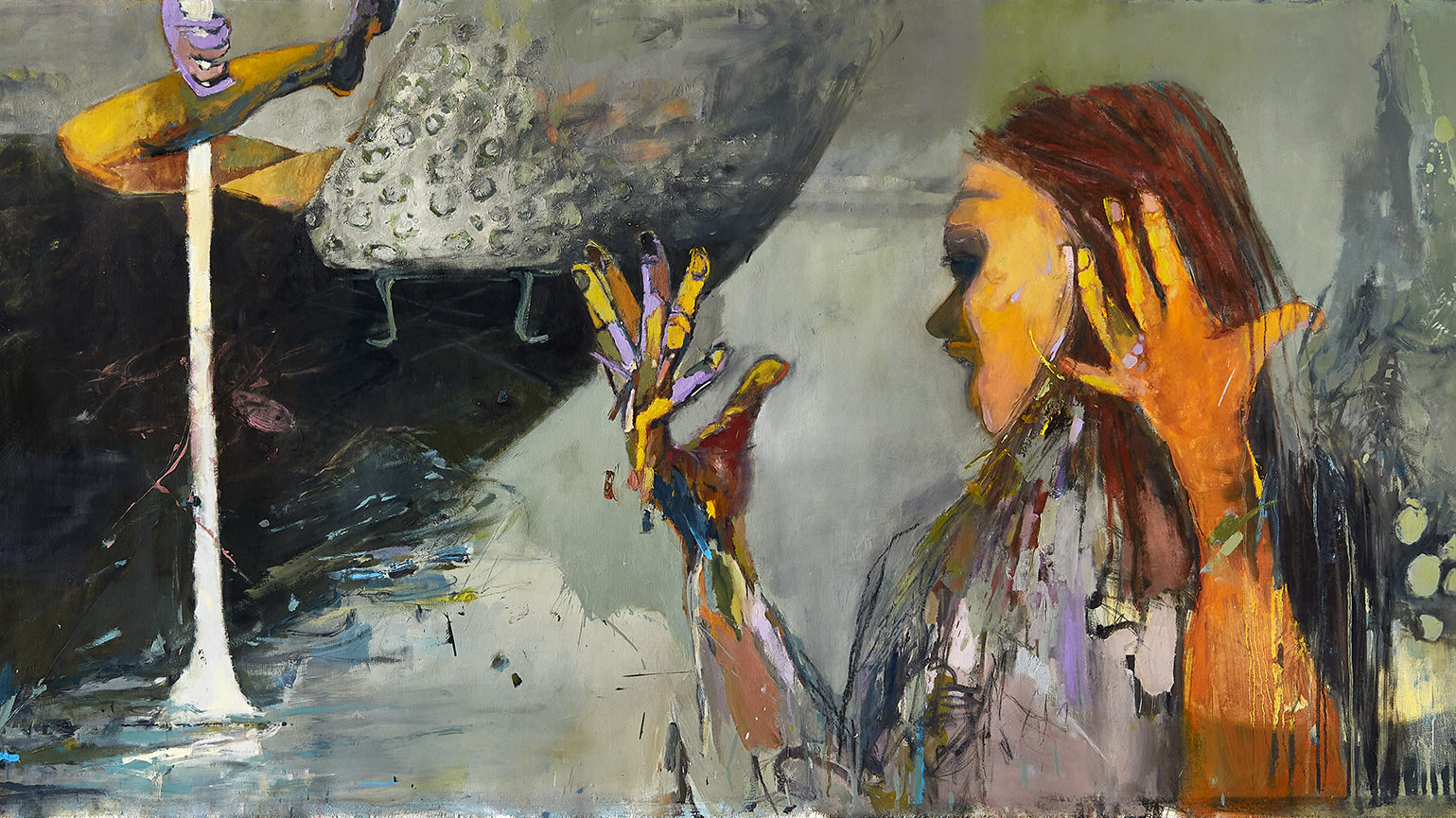Herzliya Art Exhibit Helps Women Leave Cycle of Prostitution
Participants hope showcase will change people’s perception of sex workers
A novel exhibition debuted at TEO (The Theodor Herzl Center for Culture, Art and Content) in Herzliya Pituah, north of Tel Aviv, on Monday evening, featuring the work of 20 Israeli artists each telling the story of a different woman escaping the cycle of prostitution.
The organizers hope the exhibit, titled Turning the Tables, will shift how the public perceives the women caught up in the profession.
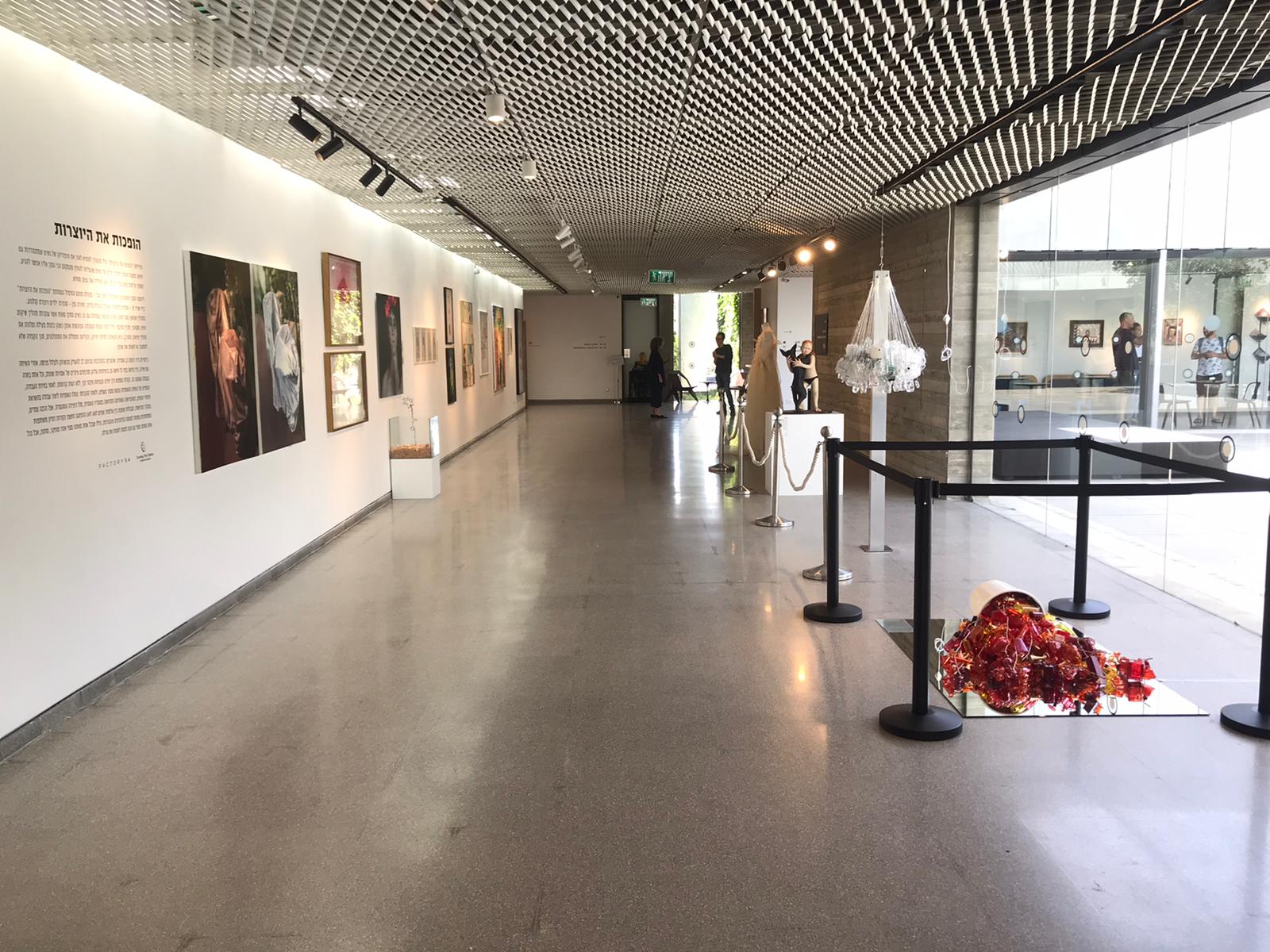
The Turning the Tables exhibit opened at TEO in Herzliya Pituah, Israel on May 3, 2021. (Roy Kogut)
The exhibit is the culmination of a two-year process that also resulted in the Hebrew-language book Turning the Tables: The Stories of 20 Women Who Survived Prostitution, and Works of Art Inspired by Them, edited by director and author Shira Geffen. Geffen recorded the women’s experiences with the assistance of Turning the Tables, an NGO that helps women leave prostitution.
Geffen teamed up with Beenee Sarid, the curator of the exhibition and initiator of the project, who chose the artists. Each woman chose an image she liked and was matched with the artist who created it.
“It’s always people choosing women in prostitution, and we needed to bring back the right of choice for the woman,” Sarid told The Media Line.
The artists, who specialized in media such as photography, sculpture and oil painting, did not know their subject’s story beforehand, so they could work without preconceptions.
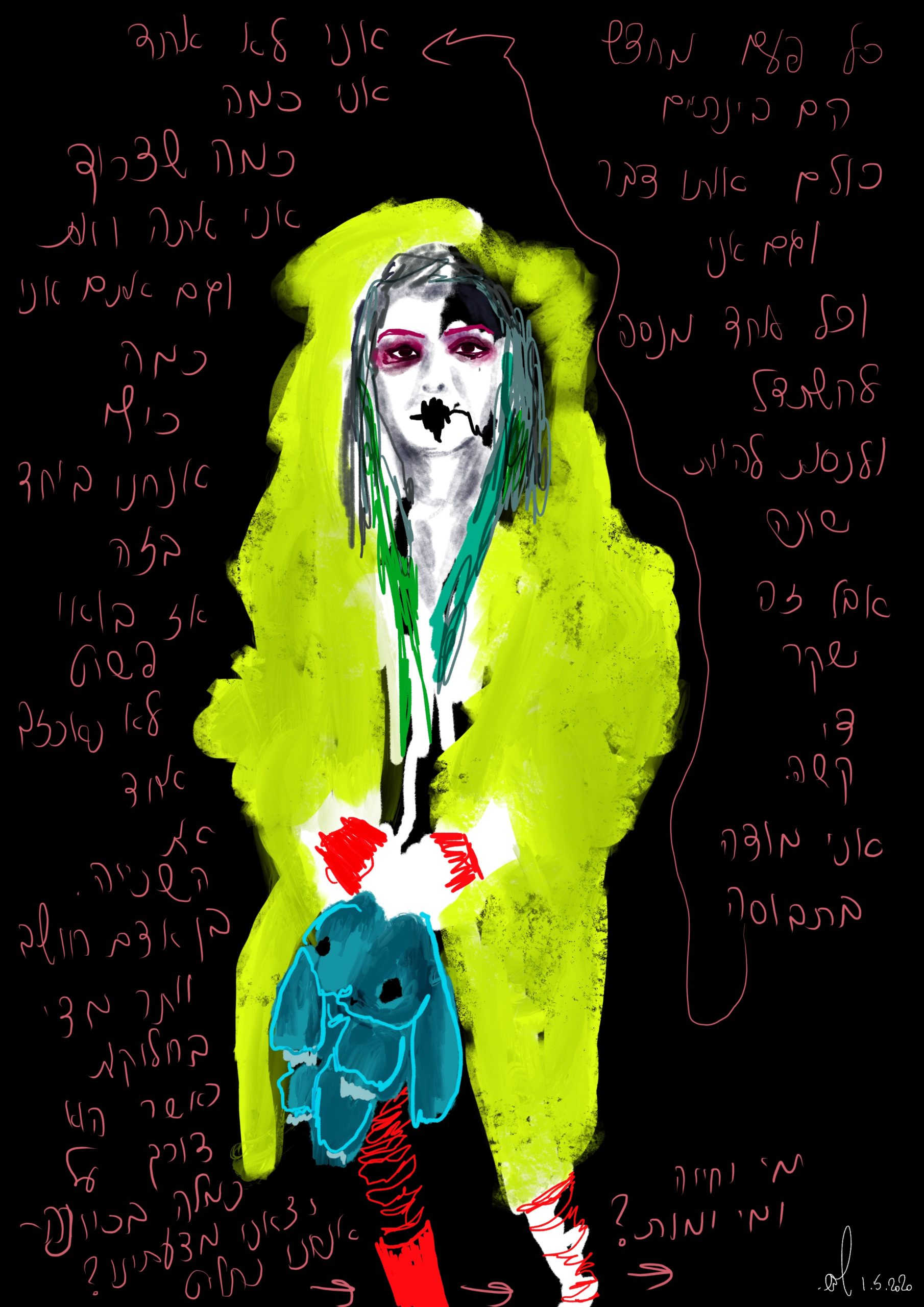
A work by Shahar Avnet. (Sigal Kolton)
Sarid, who also is an artist in the exhibition, decided to draw her subject’s story via comics because it was an art form they both admired.
“This is the most beautiful thing in this project: Each person in the pair is coming from a different world but they found a connection with each other,” she said.
Leemor Segal MSW, director at psychosocial treatment at Turning the Tables, said this project helps highlight the common humanity they, and we all, share.
“Women rehabilitating from prostitution and artists found they have so much in common because what we believe and what we see on a daily basis is that women in prostitution are no different from you than me. They didn’t come from another planet,” she told The Media Line.
“They are simply women who were not protected; therefore they were hurt and their self-esteem led them to believe that what they deserve is to be exploited and to be used,” Segal said.
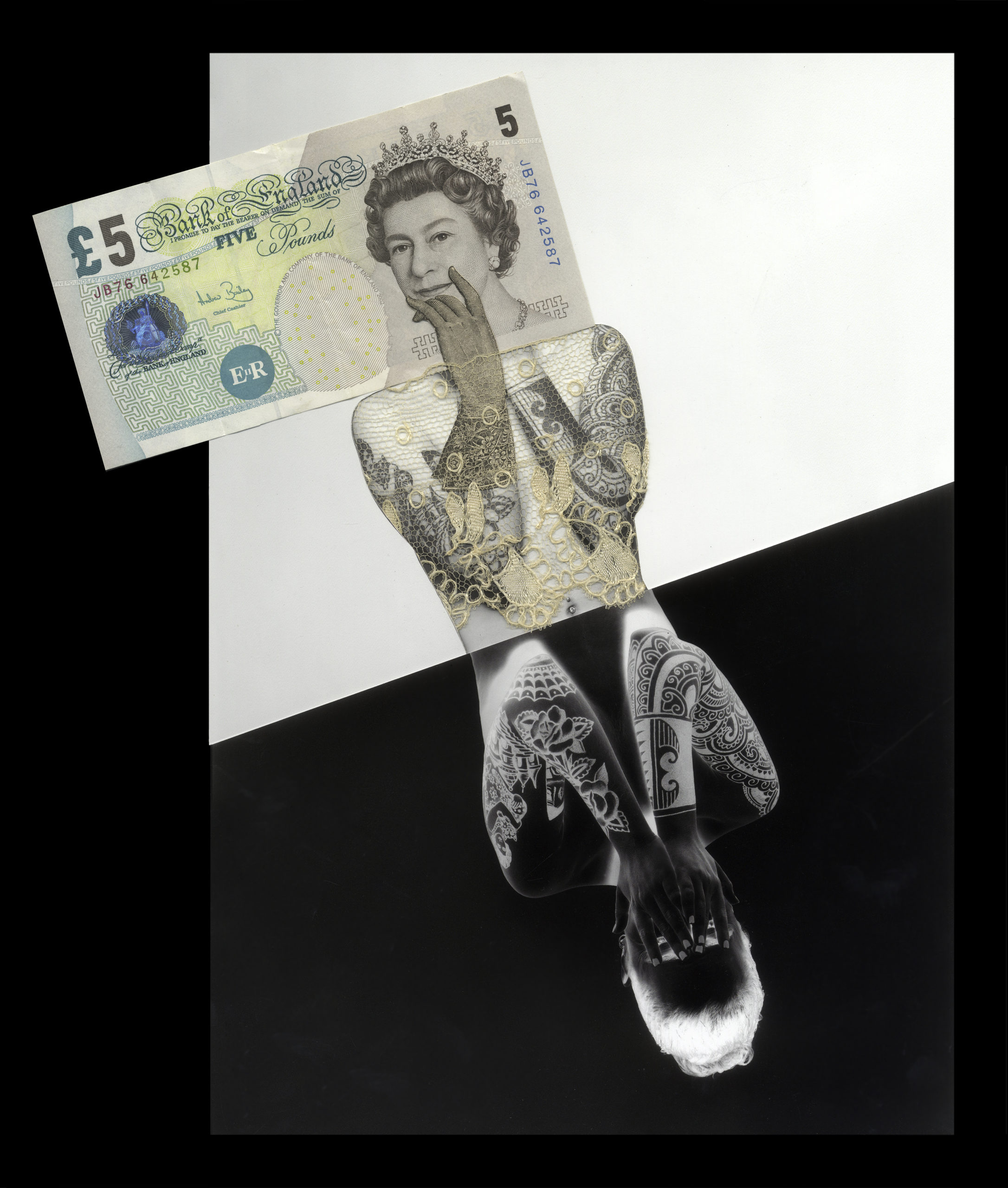
A work by Shani Nahmias. (Sigal Kolton)
There are approximately 15,000 prostitutes in Israel, according to a 2015 census by the Welfare Ministry.
Jennifer Bloch, an art curator and artist, said her perception of those in the sex industry changed as a result of her participation in the exhibit.
“I didn’t know anything about this kind of life, about them, but now that I see inside it, I have so much empathy and I know them as persons and as human beings and I see everything so differently now,” she told The Media Line. “I met the person behind the image that we have of them, the human being with feelings and problems, and bad experiences. Nobody goes into prostitution because they want to…”
Bloch’s painting, titled Miss L, has a background reminiscent of a basilica and features her subject as a Madonna-like figure with a halo around her head, with birds in black silhouette above and lions stenciled in close to her.
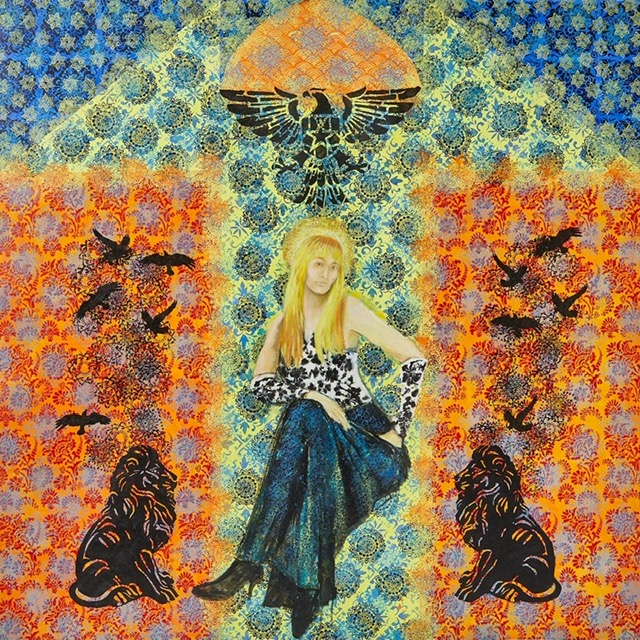
Miss L, by Jennifer Bloch. (Sigal Kolton)
“I did a lot of work with art history and the renaissance and architecture, especially cathedrals, so it fit with the art I produce,” Bloch said. “I wanted to glorify her.”
For Sarid, the process created a deeper bond than she normally would have with a subject.
“I feel empathy because I feel we passed through almost the same life journey,” she said, explaining that they both experienced childhood abuse. “It’s more than two people coming together for a process. I think she’s more like family.
“I can see that it happened to others, too. Another woman in the program, her boyfriend stole her passport and ID and she didn’t speak Hebrew. Her artist and I tried to help her get a new ID and the [other artist] took her to the police station,” Sarid said.
She said that her partner in the project also caused her to think critically about herself.
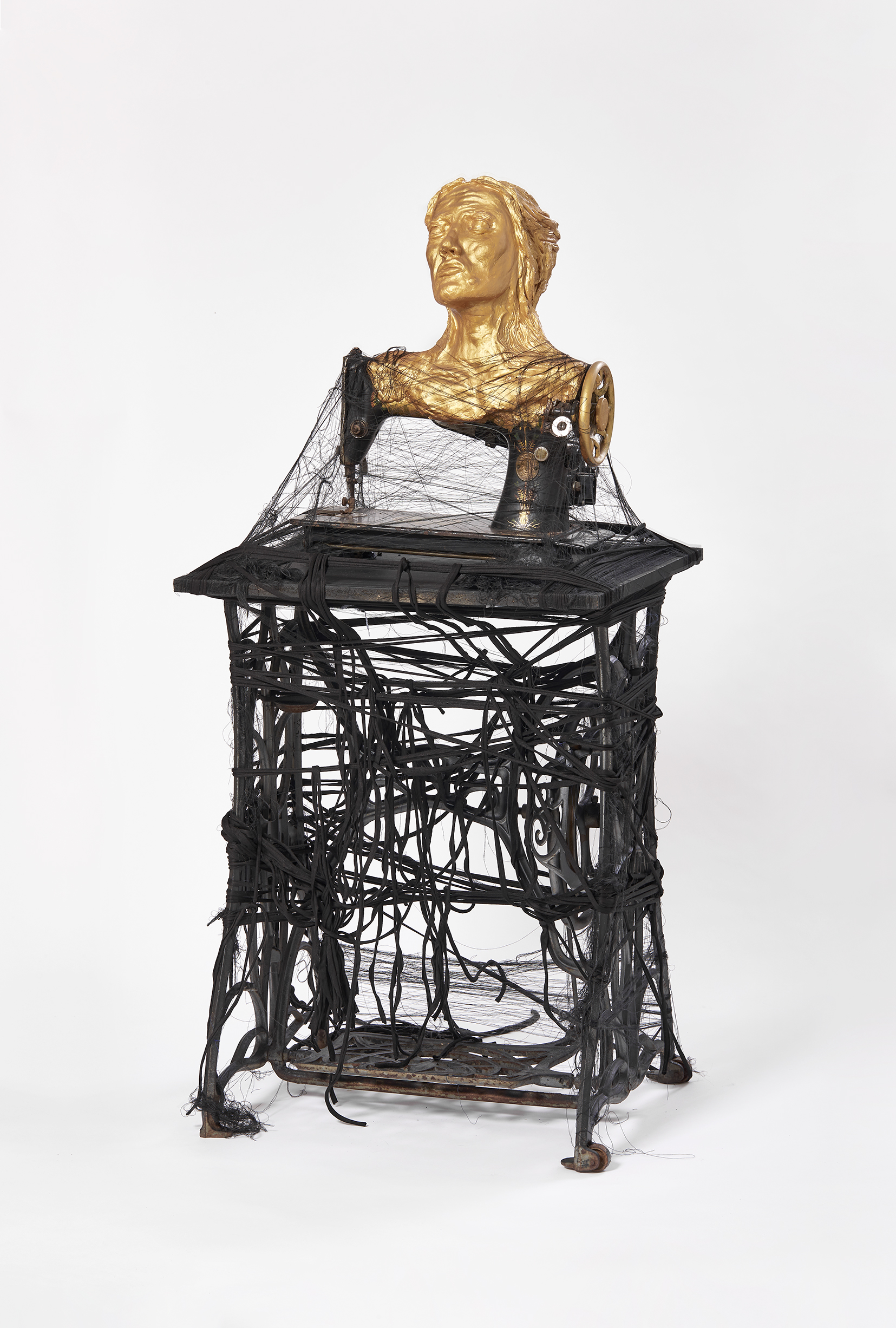
A work by Hilit Shefer. (Sigal Kolton)
“Mine was homeless; still she was such an optimist. She went to demonstrations for human rights and for animals,” Sarid said. “She is living in two different worlds: one is so destructive and in the other one she is fighting for justice and what she believes.
“It made me think: I was thinking, am I doing enough for society?” Sarid added.
For the women trying to leave prostitution, the project, sponsored by Israeli retailer Factory 54, created a great combination of factors to help with the healing process.
“It started with my need to tell the stories of these amazing women, these superwomen who pull themselves out of a hell,” Segal said. “Psychotherapy, with the narrative of their story and the work of art, is just a magic triangle.
“Through creation and the connection to art and colors, they begin to understand that they are talented and smart and have lots of skills,” she continued. “Something really begins to change from within that paves the way for them to change many aspects of their lives.
“Through creativity, they have come to see they have other options and they can place themselves in other cycles in society, not only the cycle of prostitution,” Segal said. It’s very revolutionary.”
The exhibit will take place through the end of the month. All profits from the sale of the art and books will go to the Turning the Tables organization.

